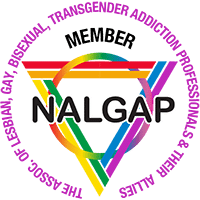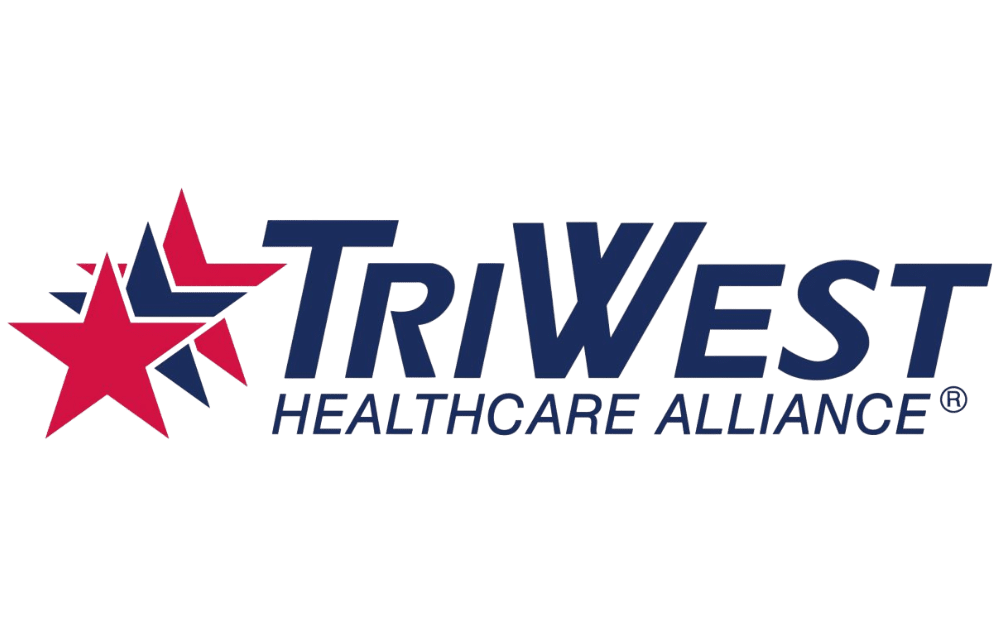Rehab alcohol centers
Comprehensive Approach to Rehab
When considering rehab alcohol centers, it’s crucial to understand the diverse treatment options available. A comprehensive approach often integrates both medical and holistic practices.
Rehab alcohol centers like Mile High Recovery Center provide structured programs tailored to individual needs. By combining evidence-based therapies with experiential modalities, these centers offer a unique path to recovery.
For many, the initial step in rehab involves detoxification, a medically supervised process that ensures a safe withdrawal from alcohol. This is typically followed by therapy sessions, where individuals explore the psychological roots of their addiction.
Importance of Holistic Therapies
Holistic therapies have gained traction in rehab alcohol centers due to their ability to address the mind, body, and spirit. This approach helps patients heal on multiple levels, enhancing the likelihood of sustained recovery.
At Mile High Recovery Center, therapies such as adventure therapy and equine-assisted therapy offer patients unconventional methods to explore personal challenges. These experiential therapies provide a break from traditional settings, fostering a deeper connection to one’s own recovery journey.
Nutritional education, also a component of holistic care, plays a vital role in rebuilding physical health, which is often compromised by substance abuse.
Personalized Treatment Plans
Personalization is a hallmark of effective treatment in rehab alcohol centers. At Mile High Recovery Center, treatment plans reflect each patient’s unique circumstances, ensuring a tailored approach to recovery.
The integration of Cognitive Behavioral Therapy and Dialectical Behavior Therapy allows therapists to address specific behavioral patterns and emotional regulation needs. This dual approach is particularly effective for those with co-occurring mental health disorders.
Family Involvement in Recovery
Family therapy stands as a cornerstone in the rehabilitation process, recognizing the impact of addiction on loved ones. Rehab alcohol centers often facilitate family sessions to mend relationships and foster understanding.
At Mile High Recovery Center, families are encouraged to participate in therapy sessions designed to improve communication and support the healing process. By addressing family dynamics, the center helps build a supportive environment for recovery.
Role of Alumni Support Networks
One of the distinguishing features of successful rehab alcohol centers is their alumni support networks. These communities provide ongoing encouragement and accountability post-treatment.
Mile High Recovery Center prides itself on an active alumni community, which serves as a vital resource for individuals navigating the challenges of sobriety. Regular meetups and activities help maintain the connection to the recovery community.
Alumni networks also offer a platform for sharing experiences and insights, reinforcing the sense of belonging that is crucial in sustaining recovery.
Through mentorship and peer support, alumni programs often become a lifeline for those in early recovery stages.
Accessibility of Rehab Services
Accessibility is a key consideration for individuals seeking treatment at rehab alcohol centers. Same-day admission and 24-hour access, as offered by Mile High Recovery Center, eliminate barriers to entry.
The center’s strategic location in Denver provides easy access to urban amenities and outdoor therapeutic activities, enhancing the treatment experience. These features ensure that help is readily available when needed.
Insurance Coverage and Financial Support
Navigating the financial aspects of rehab can be daunting, but many centers, including Mile High Recovery Center, offer assistance with insurance verification and reimbursement.
The center accepts major insurance carriers, such as Aetna, Cigna, and Blue Cross Blue Shield, to ease the financial burden on patients. This accessibility encourages individuals to seek help without the fear of financial strain.
Integrating Traditional and Experiential Therapies
The integration of traditional and experiential therapies distinguishes top-tier rehab alcohol centers. Mile High Recovery Center’s use of psychotherapy alongside art and music activities exemplifies this balanced approach.
Experiential therapy, such as art and music, provides expressive outlets for patients to process their emotions and experiences creatively. These activities complement traditional therapies, enhancing overall effectiveness.
Addressing Co-Occurring Disorders
Dual-diagnosis treatment is crucial in addressing co-occurring disorders, such as anxiety or PTSD, alongside addiction. Rehab alcohol centers, like Mile High Recovery Center, specialize in treating these complex cases.
The center employs therapies like EMDR to target trauma-related disorders, providing a comprehensive approach to mental health and addiction recovery.
Successful treatment of co-occurring disorders involves coordinated care that addresses both the addiction and mental health aspects, fostering a balanced recovery path.
Importance of Location and Environment
The environment of a rehab facility significantly impacts the treatment experience. Mile High Recovery Center’s Denver City Center location offers a therapeutic backdrop that combines urban convenience with access to nature.
This setting allows for diverse therapeutic activities, from city-based group sessions to outdoor adventures, promoting holistic healing and community reintegration.
The center’s emphasis on community-based recovery underscores the importance of location in supporting long-term sobriety and personal growth.
What makes a comprehensive approach to alcohol rehab centers effective in treating addiction?
A comprehensive approach to alcohol rehab is effective because it addresses the multifaceted nature of addiction. By integrating medical and holistic practices, rehab centers like Mile High Recovery Center create an environment that promotes healing on physical, psychological, and emotional levels. For instance, combining detoxification with therapies such as Cognitive Behavioral Therapy (CBT) and Dialectical Behavior Therapy (DBT) allows individuals to address both the physiological effects of withdrawal and the underlying psychological triggers of addiction. Personalization of treatment plans ensures that individual needs and co-occurring disorders are effectively managed. This layered approach not only aids in immediate recovery but also equips individuals with tools for long-term sobriety. What aspects of a comprehensive rehab approach do you find most compelling?
How do holistic therapies improve outcomes in alcohol rehab centers?
Holistic therapies offer a pathway to recovery that aligns the mind, body, and spirit, which is crucial for long-term healing. At Mile High Recovery Center, therapies like adventure therapy and equine-assisted therapy allow patients to engage in unique experiences that provoke self-discovery and personal growth. A client might find clarity and motivation during a mountain hike that parallels their journey to recovery. Additionally, nutritional education revives physical health, often neglected during addiction. The comprehensive blend of holistic and traditional therapies fosters resilience, helping individuals reconnect with themselves and their communities. Have you ever considered any holistic practices you might incorporate into your own wellness routine?
Why is personalization important in treatment plans at rehab centers?
Personalization in treatment plans is crucial because addiction affects individuals differently based on their personal histories and psychological profiles. At Mile High Recovery Center, crafting personalized treatment plans involves tailoring therapies to meet specific needs, such as using CBT and DBT to tackle particular emotional regulation issues. This approach is especially vital for individuals with co-occurring mental health disorders, where one-size-fits-all solutions often fall short. By focusing on unique circumstances, personalized plans increase engagement and efficacy, leading to better recovery outcomes. What personalized strategies have you seen that were effective in other disciplines or areas of life?
How does family involvement influence the recovery process at rehab centers?
Family involvement is a cornerstone of successful recovery efforts because addiction impacts not only the individual but also their loved ones. At Mile High Recovery Center, family therapy sessions are designed to rebuild trust and improve communication. When families are actively involved, they can provide a supportive network that reinforces positive changes and offers much-needed encouragement. Through understanding and shared experience, families often find their own healing pathways, which can be transformative. Imagine a family realigning from a cycle of blame to one of support–it creates a foundation for sustainable recovery. How might involving family members in a recovery process impact your view of addiction treatment?
What role do alumni support networks play in sustaining recovery post-treatment?
Alumni support networks provide ongoing encouragement and a sense of community that is critical in maintaining sobriety. At Mile High Recovery Center, the active alumni community offers regular meetups, group activities, and a platform for sharing experiences, all of which reinforce accountability and connection. This ongoing support can be particularly pivotal during challenging times, offering mentorship and peer guidance that acts as a lifeline. Think of it like being part of a team where everyone understands the challenges you face and celebrates your victories. How might staying connected with a support network alter the long-term success of recovery?
How does accessibility of rehab services impact the success of treatment programs?
Accessibility is vital in the success of treatment programs because it reduces barriers to starting recovery. Same-day admissions and 24-hour access, like those at Mile High Recovery Center, ensure that when someone decides to seek help, they can receive it immediately. This immediacy can be life-saving, as it reduces the chance of second-guessing or reverting to substances. Furthermore, strategic locations that offer both urban conveniences and outdoor therapeutic activities enhance the overall treatment experience. Imagine knowing that help is just a phone call away, regardless of the time or day. How does immediate access to treatment change perceptions about seeking help?
What role does insurance coverage and financial support play in the accessibility of rehab services?
Insurance coverage and financial support are crucial in making rehab services more accessible and less daunting financially. For example, Mile High Recovery Center accepts major insurance carriers and assists with insurance verification, which helps alleviate financial concerns for those seeking treatment. This assurance can encourage individuals to pursue help without the fear of incurring unmanageable costs. By reducing financial barriers, more people can embark on their recovery journeys. Imagine the relief of knowing your insurance can cover much of your treatment cost, allowing you to focus on healing. How important is financial transparency to you when considering medical or therapeutic treatments?
How do traditional and experiential therapies complement each other in alcohol rehab centers?
The combination of traditional and experiential therapies provides a well-rounded treatment approach that addresses various facets of addiction. At Mile High Recovery Center, psychotherapy is paired with art and music activities to offer an expressive outlet for processing emotions. Traditional therapies focus on mental health and behavior modification, while experiential therapies encourage creativity and emotional exploration. This dual approach ensures that clients can articulate their struggles verbally and non-verbally, enhancing personal insight and healing. Consider an artist who uses painting to express emotions they can’t put into words; this blend of therapy offers robust healing opportunities. Which type of therapy do you believe would resonate more with you, traditional or experiential, and why?
Why is it important to address co-occurring disorders in rehab centers?
Addressing co-occurring disorders is essential because untreated mental health issues can undermine addiction recovery. At Mile High Recovery Center, therapies like Eye Movement Desensitization and Reprocessing (EMDR) are utilized to target trauma-related disorders alongside addiction treatment. This integrated approach ensures that both conditions are managed concurrently, preventing one from exacerbating the other. For example, treating PTSD symptoms can significantly improve the success of addiction therapies. Coordinated care that addresses both facets often results in more enduring recovery outcomes. How might addressing a mental health issue alongside addiction change the trajectory of recovery?
How do location and environment affect the effectiveness of rehab centers?
Location and environment play a significant role in the overall effectiveness of rehab centers by influencing the therapeutic experience. Mile High Recovery Center’s placement in Denver offers a unique blend of urban amenities and access to natural landscapes, fostering a healing environment that supports diverse therapeutic activities. This setting allows for a combination of city-based group sessions and outdoor adventures, which are important for holistic healing. Imagine the reinvigorating effect of a nature hike balancing the intensity of therapy sessions. Such an environment not only enhances treatment but also aids in community reintegration post-treatment. How do you think a change in environment might impact someone’s recovery journey?
What resources does the Substance Abuse and Mental Health Services Administration (SAMHSA) provide for those seeking rehab services?
The Substance Abuse and Mental Health Services Administration (SAMHSA) offers a plethora of resources for those seeking rehab services, including a national helpline that provides free, confidential treatment referral and information round-the-clock. SAMHSA’s website includes a treatment locator to find facilities based on location and specific needs, helping individuals access the care they require. Additionally, SAMHSA provides educational materials and guides for both individuals and families about substance use disorders. These resources are invaluable for anyone navigating the complex journey of overcoming addiction. Consider how access to such comprehensive information can empower individuals to make informed decisions about their treatment paths. What other types of support or information would be useful for those embarking on this journey?
How has the Hazelden Betty Ford Foundation contributed to the development of rehab practices?
The Hazelden Betty Ford Foundation is a pioneer in the field of addiction treatment, contributing significantly to the development of evidence-based rehab practices. Their model combines evidence-based treatment methods with spiritual principles, a blend that has proven effective for many. They have been instrumental in integrating family-based programs and long-term support into recovery strategies, recognizing the importance of a holistic treatment approach. Their publications and research initiatives continue to influence practices across the industry. Imagine the ripple effect of their programs spreading across rehab facilities worldwide. How do you see established organizations shaping new treatment paradigms?
Resources
- Substance Abuse and Mental Health Services Administration (SAMHSA) – SAMHSA is a government agency that leads public health efforts to advance the behavioral health of the nation.
- American Psychiatric Association – The American Psychiatric Association is a professional organization representing psychiatrists in the United States.
- National Alliance on Mental Illness (NAMI) – NAMI is a grassroots mental health organization dedicated to building better lives for the millions of Americans affected by mental illness.
- National Institutes of Health (NIH) – The NIH is the primary agency for conducting and supporting medical research in the United States.
- Centers for Disease Control and Prevention (CDC) – The CDC is a national public health institute that works to protect public health and safety through the control and prevention of disease, injury, and disability.
















